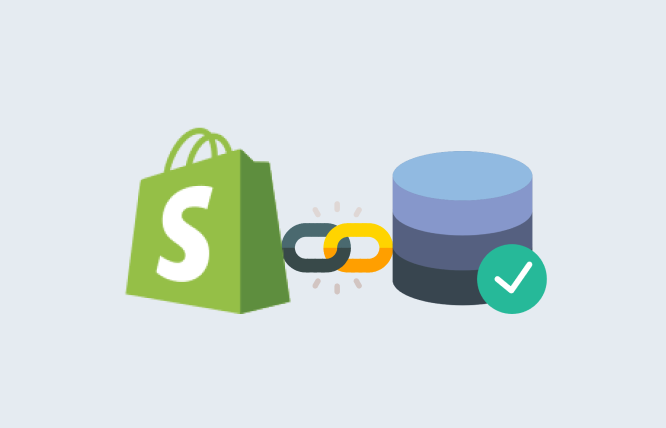Introduction
NetSuite integration can change the way your business performs. While integration may be simple, you need to take a few steps into consideration. This article will discuss the benefits of Shopify NetSuite integration and the steps you need to follow to properly integrate the tool.
Enterprise resource planning systems are seen as one of the best tools to use when optimising operations within an organisations. According to Oracle, out of the 85% of organisations that had ROI projected timelines, 81% achieved their ROI in the expected time. Other studies have seen that 95% of organisations have seen improvement in their business processes.
While their are several ERP solutions available in the market, NetSuite is seen as one of the best ERP solution to integrate in your Shopify store. In this article we will discuss what NetSuite is, the benefits it offers and how to implement Shopify NetSuite integration with the help of Shopify Plus agencies.
What is NetSuite?
To put in simple terms, NetSuite is a cloud-based ERP system that is designed to streamline business processes. These business processes include accounting activities, financial planning systems, inventory and supply chain management activities, human resource operations, e-commerce processes, and customer relationship management.
Just like any other ERP system, NetSuite will offer your Shopify business a centralised tool that improves efficiency and real-time visibility which can have a substantial impact on the growth of your business.
Key Features NetSuite Offers Organisations
Due to its extensive functionality, NetSuite offers a wide range of solutions for organisations that are trying to improve their business processes and keep a constant track of how it performs. This can be through website or even if you hire custom mobile app development services. Let’s look into the features that NetSuite has to offer:
Financial Management
If you are looking for a robust solution that will cater to all your financial management operations, NetSuite has got you covered. With features that will handle your general ledger, keep track of your accounts payable and receivable, manage billing, track fixed assets management, expense management, and create well-developed financial reports to help you streamline your business’s financials.
Inventory & Supply Chain Management
One of the most important processes that businesses need to keep a constant track of, especially for retail businesses, is inventory. With Shopify NetSuite integration, you can enjoy real-time visibility to all your inventory levels, supply chain operations, order management, inventory control and demand planning. Integrating NetSuite can keep you ahead on your inventory levels to avoid any issues.
E-Commerce Solutions
NetSuite offers a built-in solution dedicated to managing e-commerce. The SuiteCommerce platform allows busisses to manage their online sales channels, streamline the process of displaying your brand on online marketplaces, cater to all your order and payment management and even assist in website design and development
Human Resources
NetSuite’s HR management system will allow you to optimise your HR related tasks, ranging from employee records management, payroll, time and attendance management, performance management and benefits management.
Customer Relationship Management
NetSuite’s custom relationship module helps online businesses manage their customer relationships and lead them to customer delight by providing marketing automation, customer service tools and even support tools to help improve the performance of systems.
Business Intelligent and Reporting
NetSuite provides powerful reporting and analytics capabilities that enable businesses to gain insights into their operations and make data-driven decisions. It includes features such as centralised dashboards that store all the data create custom reports, and forecasting. This can help improve your business management solutions.
Benefits of Shopify NetSuite Integration
Shopify NetSuite integration has several benefits that can help a business streamline operation, enhance productivity and improve overall performance and enhance enterprise technology solutions. Following are some of the benefits you can enjoy by integrating NetSuite to your Shopify store:
Automate Order Processing And Fulfillment
Order processing and fulfillment are the most important factors to a successful business. That being said, order processing and fulfillment can be a struggle for businesses to manage. This is where NetSuite can help. With NetSuite, all the orders placed on Shopify can be automatically synced. This will enable businesses to manage orders and fulfillment processes within your business. Using NetSuite can help reduce manual data entry errors and streamline processes.
Sync Inventory Data
Shopify NetSuite integration can be a great way to keep all your data in a centralised platform, keeping it synchronised. With the help of NetSuite you can prevent stockouts, improve the accuracy of orders and offer accurate data to your customers about your product information.
Improve Data Accuracy
By automating the exchange of data between Shopify and NetSuite, companies can enhance data precision and mitigate the likelihood of mistakes. This attribute aids in enabling businesses to base their decisions on reliable data, thereby enhancing customer experiences.
Enhance Customer Experience
Integrating Shopify with NetSuite streamlines order management, fulfillment, and customer data into a single centralised platform, enhancing the overall customer experience. This consolidation facilitates quicker shipping, ensures accurate order details, and enables improved customer service delivery.
Gain Real-time Visibility Into Operations
The integration of Shopify and NetSuite provides businesses with real-time insights into their e-commerce operations, empowering them to make data-informed decisions and enhance operational efficiency and profitability.
Steps To Setup NetSuite Shopify Integration
Integrating tools to your Shopify store can often be seen as a struggle. While the process is easy, you need to make sure you follow all the necessary steps to effectively integrate NetSuite. You could recruit the help of web and application developer to make this process smoother.
1. Assess Integration Needs
Determine the specific data you want to sync between NetSuite and Shopify, such as orders, customers, products, inventory, etc.
2. Choose Integration Method
Select the integration method based on your requirements and technical expertise. Options include using pre-built connectors, custom API development, or third-party integration platforms.
3. Select Integration Partner
If you choose to use a pre-built connector or third-party integration platform, select a reputable integration partner with experience in Shopify and NetSuite integrations.
4. Set Up NetSuite Account
Ensure that your NetSuite account is set up correctly with the necessary permissions to access and modify data.
5. Configure Integration Settings
Configure integration settings in both NetSuite and Shopify to define data mappings, sync frequency, error handling, authentication, and other parameters.
6. Map Data Fields
Map data fields between NetSuite and Shopify to ensure that information is transferred accurately between the two systems. This includes mapping customers, orders, products, inventory levels, and other relevant data.
7. Test Integration
Perform thorough testing of the integration to verify that data is syncing correctly and that all business processes are functioning as expected.
8. Deploy Integration
Once testing is complete and any issues are resolved, deploy the integration to your production environment.
9. Monitor Integration
Regularly monitor the integration to ensure that it continues to operate smoothly and address any issues that arise promptly.
10. Optimise and Maintain
Continuously optimise and maintain the integration to accommodate changes in your business requirements, software updates, and evolving best practices.
Conclusion
An ERP system can play a vital role in the success of any business, specially when it comes to online businesses. A great way to get the most out of your business processes is by integrating an ERP system like NetSuite to your Shopify store. NetSuite is considered one of the top choices when it comes to integrating an ERP system and NetSuite Shopify integration will allow you to improve business processes which in turn improves your business in the long run. If you are looking to get NetSuite integration in your Shopify store, we have got you covered.
FuturByte is an ecommerce development company and with the help of our experts you can rest easy while we audit your processes and integrate NetSuite in an efficient manner. Get a free consultation today.
Also Read:Hire Someone to build Shopify Store
Frequently Asked Questions
NetSuite Shopify integration is the process of connecting NetSuite, a cloud-based ERP system, with Shopify, an e-commerce platform, to enable seamless data exchange between the two systems.
Commonly integrated data includes orders, customers, products, inventory, pricing, shipping, and tax information.
Integration allows businesses to streamline operations by automating processes, improving data accuracy, and providing a unified view of customer and order information across both platforms.
Benefits include increased efficiency, reduced manual data entry errors, improved order fulfillment speed, enhanced customer experience, and better decision-making through access to real-time data.
The complexity of integration depends on factors such as the scope of data to be synced, customisation requirements, and the chosen integration method. Working with experienced integration partners can simplify the process.
Have questions or feedback?
Get in touch with us and we‘l get back to you and help as soon as we can!




